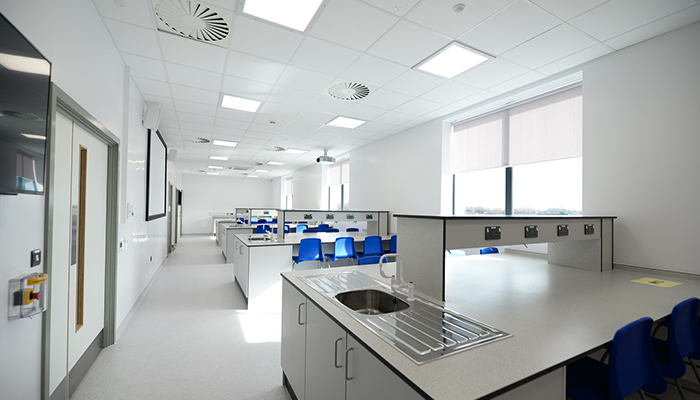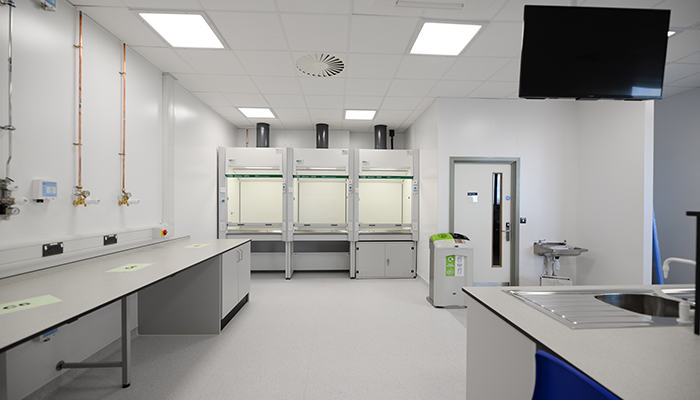Technical Research Facilities

Facilities
NCFM work with all stakeholders in the food manufacturing supply chain, from farm to fork and sea to plate, operations. Operating across all stages of product and process innovation life-cycle, the benefit NCFM delivers is that has cross-functional approaches to support clients and researchers requirements.
The NCFM have extensive laboratory and technical research facilities to support academic and business innovation and development. The breadth, scope and scale of the facilities provide specialised quality and safety, regulatory, nutrition, product development and sensory and consumer insight for the food manufacturing supply chain.
This support is available and provided by facilities accessible to research and to business, including:
Microbiology Laboratory
Providing expertise for environmental swabbing including traditional and ATP swabbing to determine surface level hygiene and highlight any contamination present in food operations.
Food microbiological analysis and molecular biology form key activities within our research and support for businesses. Here, NCFM scientists can work with you and help to determine microbiological quality of food and drink. This also includes a range of analysis methods, including shelf-life testing to determine the stability and safety of the product to meet expectations.
Further business support packages are available to help interpret microbiological results and assist in troubleshooting process and product and offer advice for improvement, innovation and development.
Air quality sampling is also available, for the detection of airborne microorganisms that may be present in factory or store facilities. PCR, Allergen testing, using the ELISA format and MiniVIDAS rapid pathogen detection services are also available.
Chemistry Laboratory
NCFM can offer proximate analysis based on the current BSI ISO standards, whilst also offering newer analytical techniques. The analyses available include:
- Fat determination is available using traditional continuous Soxhlet extraction or with rapid automatic fat extraction
- Protein determination, using the Kjeldahl method to determine total nitrogen
- Moisture determination is available using either a moisture balance or by Forced Draft Oven
- Ash determination, using a muffle furnace for quantifying minerals in food.
- Rancidity and lipid oxidation
- pH
- Water activity
This chemical analysis can be aligned and completed to support shelf life study and determination.
NPD kitchen
NCFM offers a fully equipped development kitchen for small scale product development, concept testing and benchmarking, for research and business and consumer development and testing. The kitchen has a range of domestic gas, electric and microwave ovens for a range of cooking styles. They can also be used to check the safety and quality after reheating as well as packaging integrity, depending on the product.
The development kitchen provides a facility for sample preparation area for sensory testing of products within the sensory assessment suite. This extends for businesses wishing to carry out their own recipe development, with the support of NCFM technical staff.
Sensory Suite
The NCFM sensory suite provides dedicated access and support to sensory screening and analysis, built to the British ISO standards. There are 8 booths with coloured lighting. This facility is available for business, consumer and research, requiring a professional presentation area, to present products to customers or for
The sensory analysis approaches allow businesses to send samples to NCFM for tasting and access to the use sensory software to run analysis and for onward produce and process development in the NPD kitchen.


Study with Us
At NCFM we are an internationally recognised provider of education and research in the food manufacturing and technology sector. Learn more about our range of short courses for technical and product development including Principles of Microbiology, Principles of Sensory Assessments, and Principles of Food Allergen Awareness and Control.
